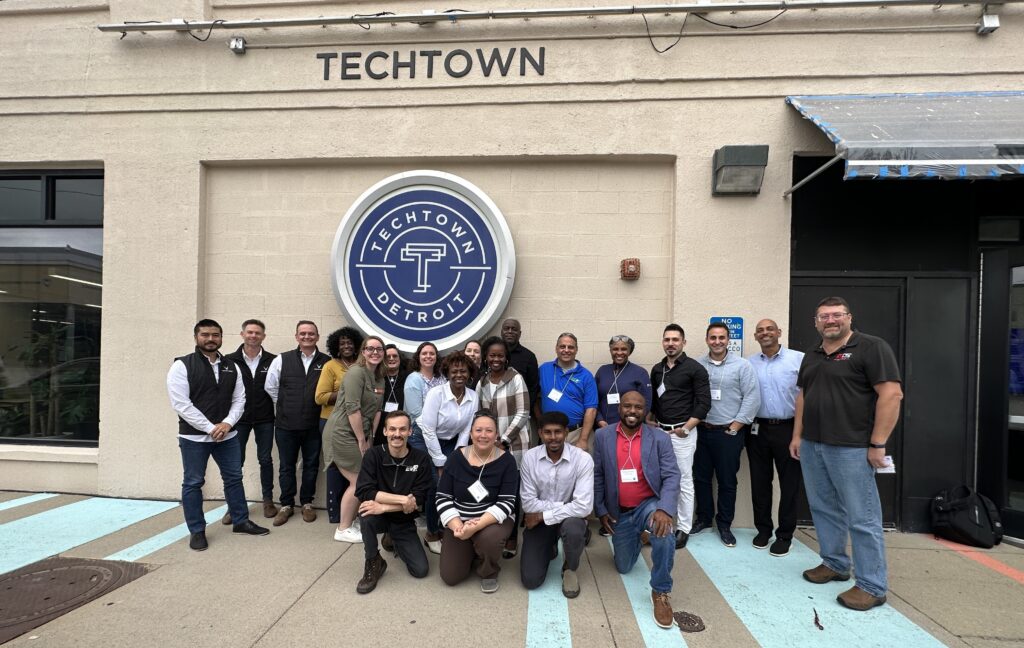Ascend Energy & Mobility Accelerator Works to Bring Sustainability Solutions to Fruition

The Ascend Energy & Mobility Accelerator – a collaboration of VentureWell and TechTown Detroit funded by the U.S. Department of Energy Office of Technology Translations – offers support to entrepreneurs creating solutions focused on emissions reductions, smart mobility technologies, and infrastructure development. Ascend is entering its second year after providing resources and training to ten startups in 2023. SBN Detroit spoke to Tricia Compas-Markman, director of National Venture Programs for VentureWell about the program and its impact on businesses and the economy in Southeast Michigan. Q: What is the Ascend Energy and Mobility Accelerator and how did it come to be? A: Ascend is powered by VentureWell and TechTown Detroit and is funded through the U.S. Department of Energy (DOE)’s Office of Technology Translations. VentureWell, a nonprofit providing training, funding, and resources to science- and technology-focused innovators and startup teams across the country partnered with TechTown in 2017 to create an investor engagement program to educate innovators and entrepreneurs on how to raise funds to support their inventions. We began to see a gap. These individuals and startups needed more support when it came to customer discovery and commercial launch. We received a $500,000 award from the U.S. Department of Energy Office of Technology Transitions to create programming and support for energy startup teams and entrepreneurs and launched the Ascend Energy & Mobility Accelerator, which trained its inaugural cohort of ten Michigan startups in 2023. We were then one of four incubators to receive a grand prize in the Energy Program for Innovation Clusters (EPIC). This prize funding will also support VentureWell and TechTown Detroit in running additional Ascend programs in 2024-2025 and beyond. Q: Tell me about the program. A: It’s a six-week program that helps bridge that gap I mentioned between customer discovery and investment readiness. We focus on mostly hardware solutions around energy and mobility problems, so these can be innovations around EV batteries, charging stations, safety, performance, and more. Q: What are some examples of startups you worked with in the launch-year program? A: Surge Mobility is a great example. This is a software management program that streamlines the EV charging process for drivers. Another example is Freight Miner, a startup based in Ann Arbor that’s developing autonomous driving technologies for commercial fleet trucks. Energy-focused startups in the cohort included ThermoVerse, which is developing cost-effective heating and cooling energy retrofits for low-to-middle-income housing property managers, enabling energy-efficient building upgrades without the need to open up walls. Another is VMX Green, a woman-owned recycling company that is now developing a recycling process for automotive end-of-life lithium-ion batteries, allowing for safer and more sustainable disposal of hazardous waste materials. Q: How does the work you are doing involve businesses and the economy in Southeast Michigan? A: In a couple of ways. First, VentureWell acts as a connector, so we are working within the regional ecosystem to help these innovators and startups connect and network. This provides opportunities for all. The community is already robust, and we are there to elevate existing resources. Second, we bring in mentors who act as an extended part of the teaching team. Many of our mentors are active investors and successful entrepreneurs who also assist in getting the teams connected to local business opportunities and networks. Example mentors include Erika Block, Ellington Ellis, Anne Maghas, Domineca Neal, and DeWayne Williams. VentureWell and TechTown Detroit are also supported by an active regional advisory committee made up of mobility and energy experts in Detroit and the local region, including Tu Le (Mobility EIR, TechTown), Alisyn Malek (serial entrepreneur and mobility expert), Clay Phillips (Mobility Technology Lead, Michigan Small Business Development Center), and Sherelle Streeter (Senior Mobility Strategist, Office of Mobility Strategy – Detroit). Q: What is the end goal? A: The end goal for the teams following the intensive six-week program is to make progress (validate product-market fit, clearly tell their story, and understand the financing landscape) and leave the program with a community of people supporting them, including peers, program mentors, and connections to the local ecosystem so they can achieve their next milestones. Our intention is for them to come out with a viable financial and business model. During the final two days of the program, we host in-person networking events at TechTown to connect these startups to partners, service providers, and investors with the intention of creating more resources and opportunities. It can be overwhelming to navigate the ecosystem here so we provide support to our alumni teams and, oftentimes, those who don’t make the cohort and need more preparation to do so. Q: How do you think the startups coming out of the program will impact the region? A: First, these entrepreneurs and startups create job opportunities for others. We also had two teams last year that were not from Michigan, who are now establishing business operations in Michigan – Surge Mobility from Turkey and Voltaic Marine Inc. from Beaverton, Oregon. There is a lot of innovation coming out of Michigan, but often founders leave to follow the money. When we can keep talent here, and also bring talent in, I think that’s a big win. We want inventors to stay local and give back to their communities. Be sure to subscribe to our newsletter for regular updates on sustainable business practices in and around Detroit.


